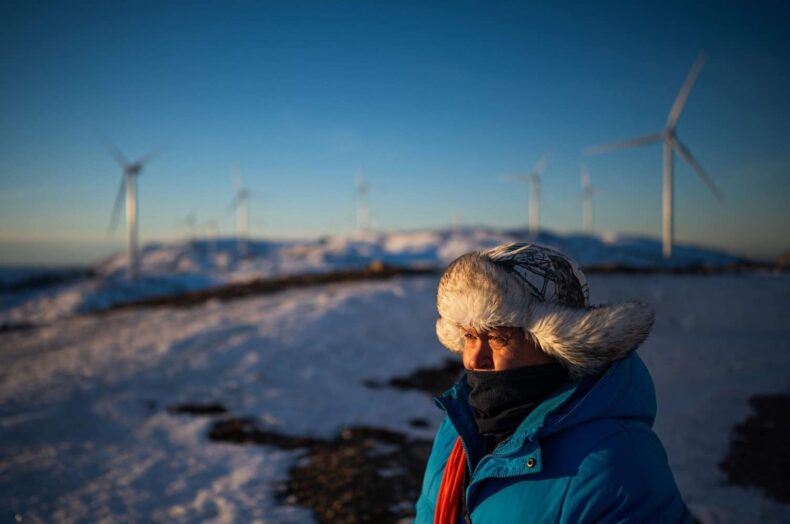

Greta Thunberg is a Swedish climate activist who has gained global recognition for her efforts to raise awareness about the urgent need to address the climate crisis. Born in 2003, she first gained international attention in 2018 when she started skipping school to protest outside the Swedish parliament, demanding that the government take more action on climate change. This sparked a global movement of student-led climate strikes, known as “Fridays for Future,” which has seen millions of young people in over 200 countries participating in demonstrations.
Thunberg has since become a prominent voice in the climate movement and has spoken at several high-profile events, including the United Nations Climate Action Summit, where she delivered a passionate speech condemning world leaders for their lack of action on climate change. She has been named Time magazine’s Person of the Year and has been nominated for the Nobel Peace Prize.
Thunberg’s activism has been criticized by some who question her age and experience. However, she continues to advocate for bold action to address the climate crisis, arguing that the urgent need for action cannot be ignored any longer. She has also been vocal in her support for Indigenous peoples and their struggles for environmental justice.
On February 22, 2024, Greta Thunberg, along with several other climate activists, blocked the entrance to the Norwegian Energy Ministry in Oslo. The group staged a peaceful protest to demand that the government stops all new fossil fuel exploration and extraction projects in the country.
On February 22, 2024, Greta Thunberg and other climate activists protested outside the Norwegian Energy Ministry in Oslo, demanding an immediate end to new oil drilling and gas exploration in Norway, which is Europe’s largest oil producer and exporter.
Thunberg and her fellow activists held up signs with slogans like “No More Fossil Fuels” and “Climate Justice Now.” They called for an immediate end to new oil drilling and gas exploration in Norway, which is Europe’s largest oil producer and exporter.
The protestors’ demands align with the global movement to limit the planet’s temperature increase to 1.5°C above pre-industrial levels, as outlined in the Paris Climate Agreement. However, the Norwegian government has been criticized for not doing enough to address climate change, despite being one of the wealthiest countries in the world and having access to renewable energy resources.
The Norwegian Energy Ministry’s response to the protest was muted, with officials refusing to comment on the demonstration. However, the protest has reignited the conversation on Norway’s role in the global fight against climate change and the need for urgent action to address the crisis.

Climate activist Greta Thunberg and other activists protested outside Norway’s energy ministry, blocking entrances to protest against wind turbines that were built on land traditionally used by Northern Europe’s indigenous Sami reindeer herders.

Climate activist Greta Thunberg and dozens of other activists on Monday blocked entrances to Norway’s energy ministry, protesting against wind turbines built on land traditionally used by Northern Europe’s indigenous Sami reindeer herders.
The reason behind the demonstration is said to be that even after declaring the wind turbines illegal by Supreme Court, the turbines have not been demolished.
20 year old Thunberg, an active advocate for ending the world’s reliance on carbon based power, said the transition to green energy could not come at the expense of indigenous rights.
“The Norwegian state is violating human rights and that is completely unacceptable and we need to stand in solidarity in this struggle.” Thunberg said while sitting in front of the ministry with other protestors.
The Roan and Storheia wind farms in western Norway are part of Europe’s largest onshore wind energy project and constructions at the two sites by the Norwegian Water Resources and Energy Directorate (NVE) were completed in 2019 and 2020 respectively.
But the project received backlash by the locals especially from Sami reindeer herders as the wind turbines were located within the Fosen reindeer grazing district and violate their right to cultural practices. Many said that the Storheia wind park deprives them of the best of their three winter grazing grounds.

Many people feared that the construction of these wind turbines could harm both nature and wildlife. The plans of the government were also questioned, as it is not necessary for Norway to develop wind power at all, considering the country’s surplus of climate friendly hydropower.
In 2021, Norway’s Supreme Court ruled that the two wind farms erected on Fosen peninsula violated the rights of six Sami families to practice their culture, breaching the United Nation’s International Covenant on Civil and Political Rights. Even after the verdict by the court, the turbines remain in operation more than 16 months later.
Sami singer-songwriter, activist Ella Marie Haetta Isaksen said that the turbines should be torn down and that the “legal rights must be respected.”
“We understand that this case is a burden for reindeer herders” Minister of Energy and Petroleum Terje Aasland said in a statement. He also added that the ministry will do what it can to resolve this case.













